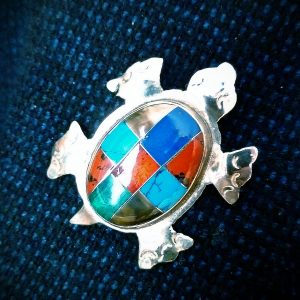Waiting. It can be a chosen tool of acceptance. It can be a way of building excitement. It can be a strategic position. Or it may be a grim necessity.
Telling someone else to wait can be a tool of control—demonstrating your power over another. It may be just gentle teasing. Or it may simply be a plea for patience.
Preparing. There is some common ground with waiting, but it is a position of action, of agency. This is not resignation, or simple hope that we will receive what we most desire. Preparation is about engagement. It is about creating possibility. It is a process of both action and openness.
It is not a vision of “all good things come to those who wait”, or “wait your turn”, “accept your lot”. Certainly, there will be some waiting, but it will be the waiting to see what unfolds from the actions taken.
Growing up in my mother’s house, I came to know Advent as a season separate from Christmas. My mother is a devout Christian in the Anglican tradition and kept the seasons well. As a child, I first understood advent as waiting. For many, that image persists. It’s about waiting for presents. Over time, I came to understand it as a time of preparation instead. Certainly, there was lots of preparing: baking, shopping, wrapping, planning meals and visits. It was easy to see the preparation for the Christmas event.
In a Christian context, Advent is about preparing for the incarnation—the embodiment of god as human. This brings god from the sky to the ground and makes god someone who truly understands human experience. Even though I no longer believe in a personified god (or even nebulous force), the idea of preparation for Christ’s coming remains a powerful one.
Embodiment. I feel most alive when I embrace my physicality and sexuality: paddling, singing, dancing, touching, making love. It is in these moments that I truly feel incarnate—body and spirit are one. I am alive, fully engaged. All in.
Although I am pulling images from the Christian tradition to provide a positive context so far, Christianity and many other religions have unfortunately also brought a terrible obsession with separateness: body from spirit, men from women, earth from heaven, us and them. We too often have felt justified in feeling superior to ‘the other’: the earth, other animals, other religions, ‘heathens’, other people in all their kinds and beauty. We create rules and customs around food, sex, money, race, land, marriage whose real purpose is to exercise control over others and reinforce distinctions about who is ‘chosen’ and who is not.
It is not only religion that has fostered this broken vision, our secular modes of operating as a society suffer similar problems: separating money and economics from human dignity and the limits of the world we live in and the commodification of everything, including our time and bodies. We exploit human need to feed our desire for cheap stuff by paying wages that cannot be lived upon and recklessly strip the resources from the world around us—especially from those with less economic power.
We know we can cause great harm and destruction, but the power is in us to remake the world in positive ways as well. Praying and waiting will get us nowhere. We must prepare for change and embody it ourselves.
When we are fully incarnate and honestly present with each other, the ‘other’ begins to melt away. In the Anishnabe tradition of the area where I live (and many other nations on Turtle Island), the phrase ‘All my relations’ expresses this social incarnation. We are part of the family of all living things. These words recognize our personhood, but tie us to all others on an equal footing. We are creatures of the earth. We are in relationship with the earth and all the plants and animals that we share the earth with.
Just as we are responsible for our parents and our siblings and children, we are responsible for and to all our relations. But don’t despair. It is a daunting task, but we are responsible together. All your relations are also responsible for you. It is not all dependence or responsibility. It is interdependence, mutual care, and shared responsibility.
I don’t believe that Jesus is coming this or any other Christmas to save us from anything, much less ourselves. But I do believe in Advent and Incarnation. God is becoming fully incarnate every day. That god is coming into being. That god is our presence with each other. That god is our best selves. That god is us.
Prepare for your incarnation.
All my relations.
